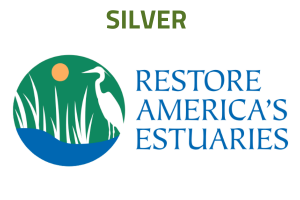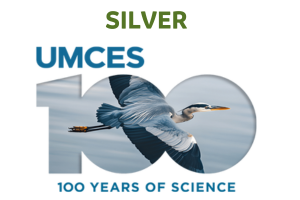- About
- Program
- Registration
- Experience
- Student & EC
- Hotel/Travel
- Sponsor/Exhibit
- Resources & More
Overall Design of Scientific Session and Guidance for CERF Session ChairsBelow is information to assist Session Conveners with assembling and conducting their sessions in a virtual format. This page will be updated periodically with new guidance prior to the conferenceAs we ready ourselves to interact virtually at CERF 2021, the planning committees have been innovating on the format and style of the scientific sessions and we are hopeful that the new formats will create a rich experience for participants. The virtual format for CERF 2021 creates the opportunity to reach a more expansive group of scientists and students from around the world to address the science and management of coastal ecosystems and communities. The conference format will use technology that has worked well for other recent online conferences to emphasize virtual discussion during the conference event, including small-group engagement for poster presentations. We emphasize that the new special session format is intended to create opportunities for dialogue and networking. We know that these are some of the experiences that CERF attendees value. While we cannot replace the informal conversation in the coffee line we would have had in-person, we appreciate your willingness to innovate together to ensure that the virtual special sessions are not a passive experience but include interaction and connection. We are enthusiastic about the special sessions that you all have put forward and we would like to assist you in making them a success. This document is intended to provide you with guidance for assembling your special session, given the changes that have occurred as a result of “Going Virtual.” We also explain in brief detail the additional training and guidance opportunities that are forthcoming for session chairs in the coming months to aid you in moderating your scientific session. Again, we greatly appreciate the added demands on your time and energy in these pre-conference activities. Recap on Scientific Session FormatBecause the conference is virtual, the format for CERF science presentations has changed in order to maximize meaningful discussion and virtual engagement. Oral sessions: Oral sessions will be organized as one or more 1.5-hour virtual session blocks with synchronous content. These live-content blocks will be divided between:
Moderators will encourage and collate questions for all speakers and these questions will be used to kick off the discussion portion of the session block. We expect that student volunteers will be available to help with the collation of questions. All talks will be pre-recorded and delivered synchronously during the session. Presenters of 5-minute summary talks are also encouraged to record a traditional 15-min talk that will be available for asynchronous, on-demand viewing immediately after the session. Links to that talk can be given in the summary talk and will be viewable in the online program. Presenters are strongly encouraged to be present for synchronous sessions. However, if accessibility and logistical issues arise, presenters are not required to be present. Note that attendance ensures that you are present to answer questions and participate in the discussion period at the end of the session. Poster sessions: Poster submissions will be posted online and made available to conference attendees throughout the conference. Poster presenters may record and post an oral summary of their poster if they so choose. Conference attendees may interact with poster presenters during asynchronous discussion forums and/or during a scheduled Poster Roundtable, which will feature informal discussions in a live synchronous virtual ‘room’. The virtual synchronous Poster Roundtables will facilitate informal discussion and networking opportunities to emulate the engaging experience of traditional CERF poster sessions. Assembling and Shaping Your SessionThis new virtual scientific format requires more effort to identify anchor talks and develop a coherent plan for the 30-min discussion period. We note that the default 90-minute session format is anchor-summary-discussion, evenly split into 30/30/30-minute segments. However, we would like to be flexible in this format if session chairs propose a creative alternative that meets the spirit of maximizing online engagement. Proposed formats which deviate from the default must be submitted to the Scientific Program Committee (SPC) for review. In assembling your session, you should encourage your colleagues to submit to your session as always. However, because of the new format, we provide additional recommendations for you to consider below. Anchor Talks: These talks should stimulate interest and set up the focus for an individual session. These talks can be either recruited or chosen from among the submitted abstracts. In keeping with the conference theme “Celebrating Our Past, Charting Our Future,” a default option is that the Anchor talk(s) give an overview or review of the grand challenges that the session topic is addressing, or highlight recent scientific advances, fundamental data gaps and opportunities for the future. We are mindful that in balancing synchronous sessions with a mix of “anchor” and “summary” talks, some individuals will have more speaking time. We also continue to be thoughtful about how to make the poster sessions well attended and fruitful for attendees. This note is to ask you to consciously consider the implications of your selections for the various categories of presentations in terms of representation of diverse voices at the meeting. We want a blend of early, mid, and late career voices and these anchor talks are an excellent vehicle to promote early career scientists. We want new CERF attendees to feel welcome and heard. And we know that our own biases can create a “club” like tendency to favor people we know. We have taken this to heart in planning our keynote and plenaries, considering diverse identities and career stages. Please keep this in mind when selecting your anchor talks. Remember that student talks are often some of the best presentations at any of our meetings. We hope this same ethos of inclusion will also inform your work as moderators and facilitators of any synchronous interactions at CERF 2021 to ensure that many voices are heard and encouraged to speak up. Summary Talks. All oral talks, with the exception of anchor talks that session chairs specifically recruit, are by default summary talks. This is a shift from what is typically the default--a traditional 15-minute talk. Note that we are encouraging those giving a summary talk to record a full-length traditional talk where they can give more details. We will be providing speakers with more information and training this summer, so if you get questions from your speakers, you can direct them to us. Discussion Block: We encourage a 30-min moderated discussion block that will feature the session speakers as panelists and facilitates discussions about all talks in the session block. There is flexibility on the exact format. We suggest that you develop a plan for this discussion period that can maximize engagement of all the presenters and the audience. We suggest that you develop back up questions in advance that can supplement those that session participants will be entering for all speakers into the chat. The student volunteer will collate the questions for you (the session chair/moderator), and you can call on the audience to unmute and ask those questions. You can also manage the discussion more directly by focusing the discussion on a set of key questions/issues you would like the audience to discuss. You are also welcome to innovate using software like Google’s “Jamboard” or other discussion aides to foster both verbal and written interactions. We know that the Zoom format provides for multiple layers of conversations via the chat box and/or collaborative written spaces in addition to those who unmute and speak. Multiple 90-min Oral Session Blocks: For some session topics, the level of interest generated will result in the need for multiple 90-minute blocks. This is not always easy to anticipate, and we have fielded questions on how the second or subsequent blocks of 90 mins should be managed if the Anchor talk for the session has already occurred in the first session. If this occurs (or you are intentionally aiming for this), we suggest that you should think of your session as organized into topical subthemes, each of which may have an “anchor” talk(s) associated with them. Again—this will be an opportunity to bring in diverse voices and promote early career scientists. If you have multiple co-chairs, the moderator responsibility can be distributed amongst them. Poster Session. Some of your abstracts may be in the poster session. The default assumption is that the Session Chair will moderate the poster “room” for that session unless you make other arrangements (i.e.. co-chair, etc.). The Poster committee will be providing specific guidance and instructions on the software and how the interactions can be moderated. Stay tuned. Additional Guidance and Training for Session ChairsWe anticipate the following guidance and training for session chairs via recorded webinars or live meetings:
Contact Us with Questions, Concerns, or RequestsOral Session Committee Iris C. Anderson, [email protected] Poster Committee Pedro Morais, [email protected]
|


